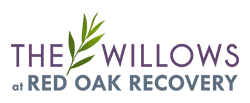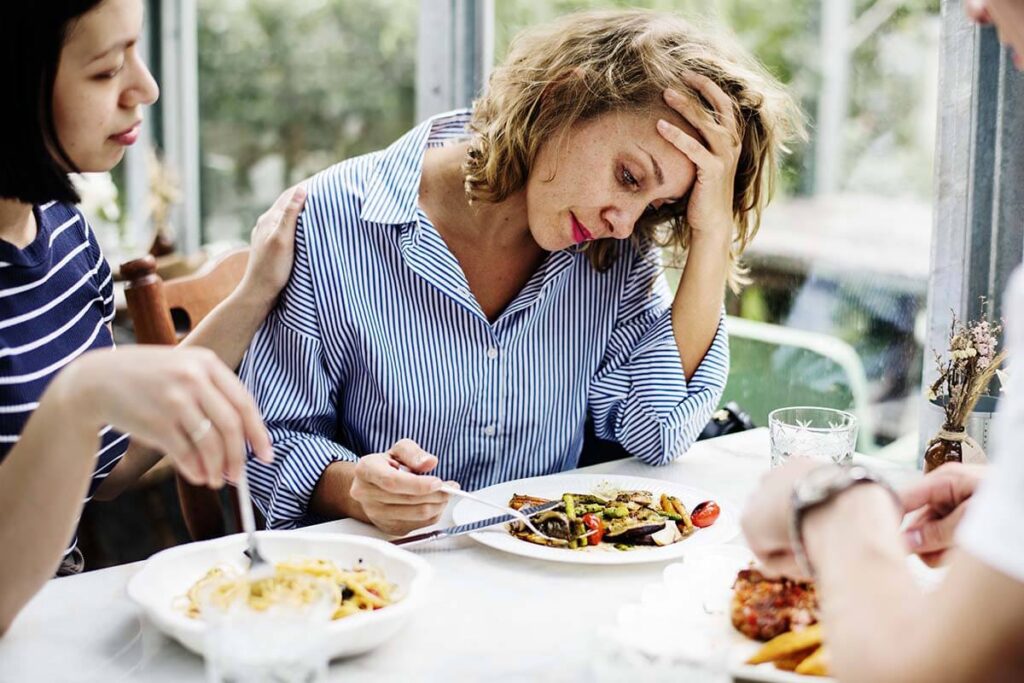Holiday festivities often encourage eating and drinking alcohol in quantities that would otherwise be discouraged. Those with disordered eating likely feel a great deal of stress and anxiety leading up to these events as they are not aligned with their personal habits. Disordered eating is a serious medication condition not to be confused with an eating disorder (ED). Disordered eating is considered abnormal eating mannerisms that can involve many of the same habits associated with an eating disorder. These may or may not include binging and purging, eating for emotional reasons, restrictive eating, or extreme dieting.
If you or someone you love struggles with their eating habits, we encourage you to reach out to The Willows at Red Oak Recovery® at 855.773.0614.
Address Your Disordered Eating Before Thanksgiving
Many people feel stressed out just thinking about the amount of food that’s going to be on the table, the number of times someone is going to push you to eat more, or the way family or friends might question your dietary habits. In such cases, you may have an issue with disordered eating.
Disordered eating is a common problem and can be particularly stressful about the holiday season when food plays a large role in gatherings with family and friends. You may have heard others describe “food as love” or self-affirmations that they express themselves or their love through cooking. Food is often described as a love language. Keeping that in mind, this can be extremely uncomfortable for someone who has dietary restrictions.
However, not all dietary restrictions mean someone has disordered eating or struggles with an eating disorder. Those with medical conditions such as anorexia and bulimia are known to binge and purge. Individuals struggling with full-blown eating disorders may show physical signs of illness as a result of their restrictive behaviors. Those with disordered eating may have less obvious symptoms, and the signs of their difficulty may not be as clear.
Signs You Struggle with Disordered Eating
Signs that you may have an issue with disordered eating may or may not include:
- Obsessing about what food you let yourself eat
- Personal rituals surrounding eating
- Concern about eating in front of others
- You feel eating is closely associated with your physical appearance
- Frequently eliminating foods from diet or trying new diet trends
- Convinced exercise will solve your any dietary choices
There are also physical conditions that can result from disordered eating. Therefore, it’s vital to address these conditions as soon as possible.
Long-Term Issues Associated with Disordered Eating
If you engage in disordered eating for a long period of time, you become increasingly at risk for a number of serious physical and mental health issues. These can include:
- Increased anxiety
- Depression
- Social isolation
- Irreversible GI problems
- Bone loss
- Heart problems
- Irregular blood pressure
How to Navigate Holiday Meals
A few basic tips for navigating holiday meals include treating them as an everyday meal. Let others do as they will, but you can tell yourself that this is just another meal.
Before the event, you may want to consider making a list of topics that you feel are safe. If someone brings up a triggering subject, you can try to change the subject to a safe one or simply let them know you are not comfortable with the topic. Choosing personal but neutral subjects for conversation can help avoid uncomfortable subjects that result in body talk or eating habits.
If you feel comfortable, it’s reasonable to explain to others that you have had difficulty with your eating in the past and that you are careful about how you make choices. Being honest about your anxiety surrounding food may help others understand your behavior surrounding food and result in them not pushing unsafe topics, discussions, or behaviors (i.e., extra helpings) on you.
If possible, try to have a go-to person at the event who can strike up a conversation unrelated to your personal issues surrounding food or weight. This way, if you find yourself triggered by a comment someone makes, you are less likely to act impulsively. Having a person available to either at the event or on call, so to speak, via text or chat, can help you feel secure.
Contact The Willows at Red Oak Recovery® for Treatment
If someone has disordered eating, it’s similar to being in the early stages of addiction. Early intervention is ideal for preventing long-term harm. Mental health counselors at The Willows at Red Oak Recovery® are trained to address women’s struggles with food, body positivity, self-acceptance, self-esteem, and negative thought patterns. These challenges can contribute to problems with healthy choices.
Eating does not have to be a chore or a source of anguish. If you are struggling with issues surrounding eating, we encourage you to reach out to the professionals at The Willows at Red Oak Recovery® by calling 855.773.0614.


